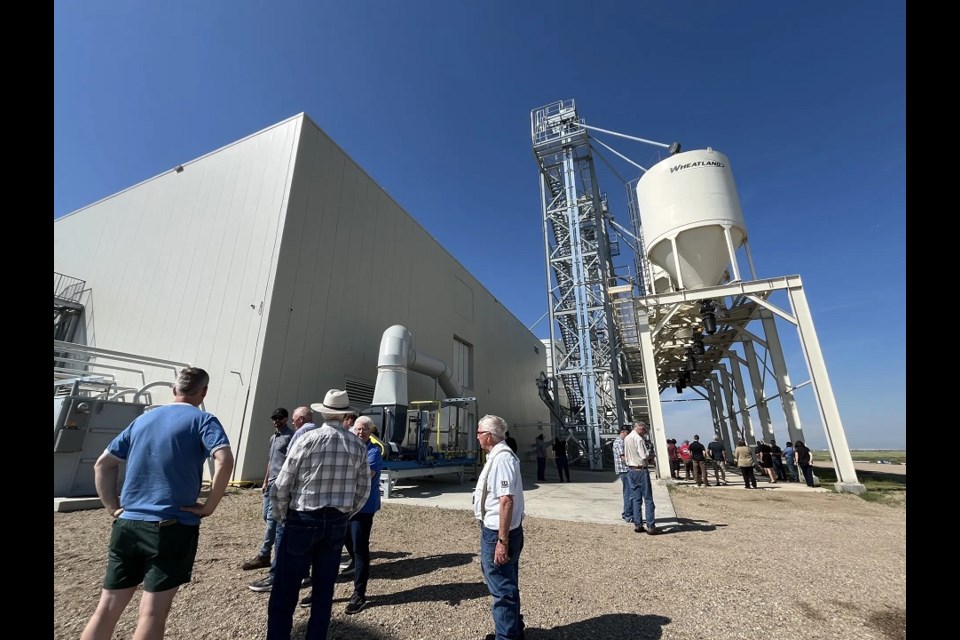Widely known for its involvement in the Saskatchewan oat processing industry, Minnesota-based company Grain Millers Inc. is now beginning to dabble in flax.
After first diversifying into flax throughout the United States, Grain Millers attempted an expansion into Saskatoon several years back. With the processing facility located inconveniently in the middle of the bustling city, and with the lease soon to run out, the company’s leadership knew it had a decision to make.
Several years later, that decision led to the grand opening of the new Grain Millers flax processing plant in Delisle, just 30 minutes down the road.
The crews from the operations in Yorkton, Delisle, and Minnesota were present for the event, as well as CEO and President of Grain Millers Todd Stohlmeyer. He says although oats and flax are covered under the Canada U.S. Mexico agreement, tariffs and the uncertainty that come with them have certainly impacted the company.
“Even during the startup with the uncertainty that was going on in March, we had customers that were saying ‘hold orders’, ‘ship stuff in advance of April 1’, and so we’ve had to manage through that. I think the current status of the USMCA has given us some reprieve. I think it actually is beneficial for Canadian growers, because the tariffs will be on other imports into the U.S., so it should be an advantage for us moving forward.”
Regardless of the current tension between the U.S. and Canada, Stohlmeyer says America is highly dependent on its northern neighbour in this regard.
“Ninety-four per cent of the oats consumed in the U.S. come from Canada. You just can’t do that in the U.S. The infrastructure is not there. The elevation system, the grower network is not there for it. We are highly dependent on Canadian-grown oats, and for that matter, flax, as well.”
Inside the plant, flax is sorted by weight, quality and colour. The flax to be used in ready-to-eat snacks is heat treated for microbe and pathogen control, and large bags are filled with either yellow or brown, organic or conventional seed. The flax then makes its way to store shelves in the form of baked goods, health food snacks, and even pet foods.
“It’s used as a topical application for breads now. It’s replaced sesame seeds in many situations. It’s used as an ingredient in both pet foods and consumer foods.”
He adds that the facility will also bolster the community of Delisle and those in the surrounding area.
“It’s providing jobs. It’s providing opportunities for farmers in the region who can sell to us. Transportation jobs, you think about the ripple effect of what this does for the economy, it’s very positive.”
He leaves Saskatchewan residents with one message; “In a very hostile political environment, we as a U.S.-based company, we still depend on the Canadian farmer.”
Those very Canadian farmers are encouraged to plant more flax in coming years to keep the facility busy and ensure Grain Miller clients across North America and beyond are receiving the products they need.
Currently, the plant is only shipping via truck, but with the railway track just metres away, the future plan is to expand to use rail in the future.




